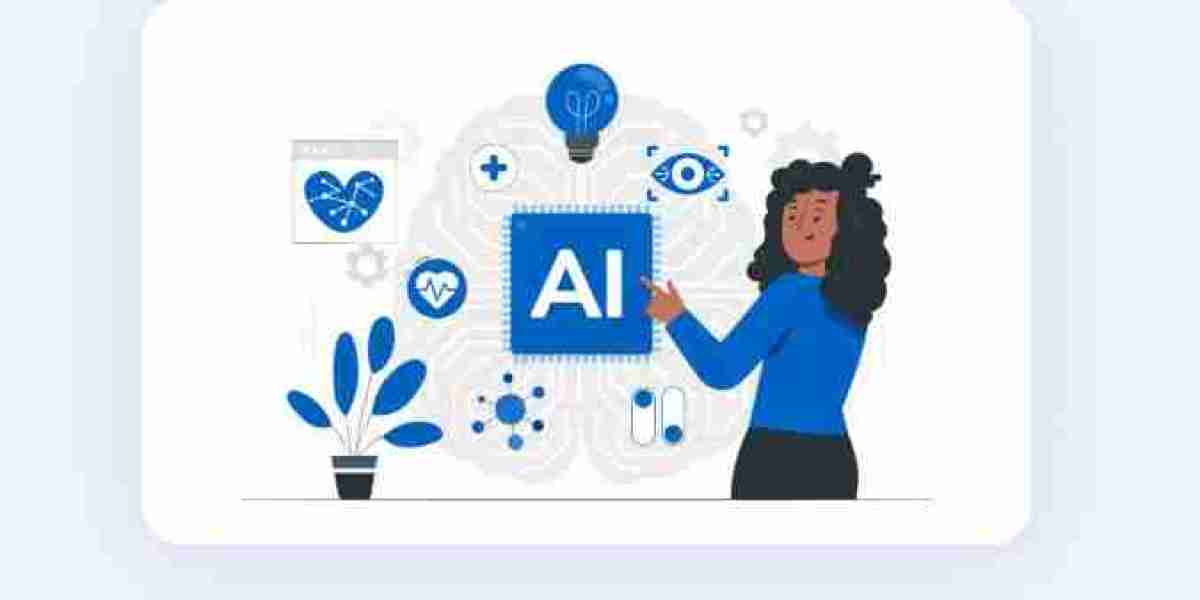Introduction
In the fast-paced realm of healthcare, where every second counts and accuracy is paramount, the integration of artificial intelligence (AI) has emerged as a game-changer. From streamlining administrative tasks to enhancing diagnostic accuracy, the benefits of AI in healthcare are undeniable. This article delves into the myriad ways AI is revolutionizing the healthcare landscape, offering insights into its applications, advantages, and the profound impact it has on patient outcomes.
Unveiling the Benefit of AI in Healthcare
Transformative Diagnosis and Treatment
In the intricate web of medical diagnosis and treatment, AI serves as a beacon of precision and efficiency. Through advanced algorithms and machine learning techniques, AI-enabled systems analyze vast amounts of patient data with unprecedented speed and accuracy. This leads to early detection of diseases, personalized treatment plans, and ultimately, improved patient outcomes. The benefit of AI in healthcare lies in its ability to unravel complex medical scenarios swiftly and effectively, empowering healthcare providers to make informed decisions and deliver tailored care.
Enhanced Patient Care and Monitoring
One of the most significant advantages of AI in healthcare is its capacity to revolutionize patient care and monitoring. AI-powered devices and wearables enable continuous tracking of vital signs, medication adherence, and overall health status in real-time. By harnessing the power of AI, healthcare professionals can remotely monitor patients, detect anomalies promptly, and intervene when necessary, thereby ensuring proactive and personalized care delivery.
Optimized Administrative Efficiency
Beyond clinical applications, AI streamlines administrative processes, optimizing operational efficiency within healthcare organizations. From automating appointment scheduling to facilitating medical billing and coding, AI-driven solutions alleviate administrative burdens, allowing healthcare providers to focus more on patient care. By reducing paperwork, minimizing errors, and enhancing workflow efficiency, AI enhances the overall productivity and effectiveness of healthcare delivery systems.
Empowering Medical Research and Development
AI serves as a catalyst for innovation in medical research and development, accelerating the pace of discovery and breakthroughs. By analyzing vast datasets and identifying patterns, AI algorithms contribute to drug discovery, genetic research, and the development of cutting-edge treatment modalities. Moreover, AI-driven simulations and predictive models enable researchers to simulate clinical scenarios, forecast outcomes, and optimize experimental designs, thereby expediting the development of novel therapies and interventions.
Fostering Preventive Healthcare Practices
Prevention is paramount in healthcare, and AI plays a pivotal role in fostering preventive healthcare practices. Through predictive analytics and risk stratification algorithms, AI identifies individuals at high risk of developing chronic conditions or experiencing adverse health events. Armed with this predictive insight, healthcare providers can implement proactive interventions, lifestyle modifications, and personalized wellness programs to mitigate risks and promote long-term health and well-being.
Ensuring Data Security and Privacy
In an era dominated by data-driven healthcare solutions, ensuring the security and privacy of patient information is paramount. AI augments existing cybersecurity measures by detecting and mitigating potential threats, safeguarding sensitive medical data from unauthorized access and breaches. By implementing robust encryption protocols, access controls, and anomaly detection algorithms, AI fortifies the digital infrastructure of healthcare systems, preserving patient confidentiality and trust.
Facilitating Surgical Precision and Innovation
Within the realm of surgical procedures, AI-driven technologies unlock new frontiers of precision and innovation. From robotic-assisted surgeries to image-guided interventions, AI enhances surgical accuracy, reduces operative times, and minimizes risks for patients. By amalgamating real-time imaging data, preoperative planning, and intraoperative feedback, AI empowers surgeons to perform complex procedures with unparalleled precision and safety, ushering in a new era of minimally invasive surgery and enhanced patient outcomes.
Empathetic Virtual Health Assistants
In the era of patient-centered care, AI-driven virtual health assistants emerge as empathetic companions, providing round-the-clock support and guidance to patients. These virtual assistants leverage natural language processing (NLP) and conversational AI to interact with patients, address their inquiries, and offer personalized health advice. By fostering continuous engagement and empowering patients to take an active role in their healthcare journey, AI-driven virtual health assistants enhance patient satisfaction and adherence to treatment plans.
Promoting Equity and Accessibility
AI holds the promise of promoting equity and accessibility in healthcare by bridging gaps in healthcare delivery and overcoming geographical barriers. Telemedicine platforms powered by AI enable remote consultations, diagnostics, and monitoring, thereby expanding access to healthcare services in underserved rural areas and marginalized communities. Moreover, AI-driven decision support systems aid healthcare providers in resource allocation, triage, and treatment planning, ensuring equitable distribution of healthcare resources and enhancing healthcare access for all.
Challenges and Ethical Considerations
Despite its transformative potential, the widespread adoption of AI in healthcare presents challenges and ethical considerations. Concerns regarding data privacy, algorithmic bias, and accountability necessitate robust regulatory frameworks and ethical guidelines to ensure responsible AI deployment. Additionally, addressing the digital divide and disparities in access to AI-driven healthcare technologies is crucial to prevent exacerbating existing healthcare inequalities.
Future Directions and Innovations
Looking ahead, the future of AI in healthcare holds boundless possibilities for innovation and advancement. From the integration of augmented reality (AR) and virtual reality (VR) in medical training to the emergence of AI-driven drug discovery platforms, the trajectory of healthcare is poised for unprecedented transformation. By fostering interdisciplinary collaboration, ethical stewardship, and continuous innovation, AI has the potential to reshape the healthcare landscape and usher in a new era of patient-centered, data-driven medicine.
Frequently Asked Questions (FAQs)
1. How does AI contribute to improving diagnostic accuracy in healthcare? AI harnesses advanced algorithms and machine learning techniques to analyze vast datasets, enabling early detection of diseases and personalized treatment planning.
2. What are the key benefits of using AI-driven virtual health assistants? AI-driven virtual health assistants provide round-the-clock support to patients, offering personalized health advice and fostering continuous engagement in their healthcare journey.
3. How does AI promote equity and accessibility in healthcare? AI-powered telemedicine platforms expand access to healthcare services in underserved areas, overcoming geographical barriers and bridging gaps in healthcare delivery.
4. What are some ethical considerations associated with the widespread adoption of AI in healthcare? Ethical considerations include data privacy concerns, algorithmic bias, and ensuring accountability in AI-driven decision-making processes.
5. What innovations can we expect in the future of AI in healthcare? Future innovations may include the integration of augmented reality (AR) and virtual reality (VR) in medical training, as well as AI-driven drug discovery platforms.
6. How can healthcare organizations address challenges related to AI implementation? Healthcare organizations must prioritize data security, transparency, and ethical guidelines to ensure responsible AI deployment and mitigate potential risks.
Conclusion
In conclusion, the integration of AI in healthcare heralds a new era of innovation, efficiency, and patient-centered care. From transformative diagnosis and treatment to enhanced patient monitoring and virtual health assistants, the benefits of AI in healthcare are multifaceted and far-reaching. As we navigate the evolving landscape of healthcare, it is imperative to embrace AI responsibly, addressing challenges and ethical considerations



